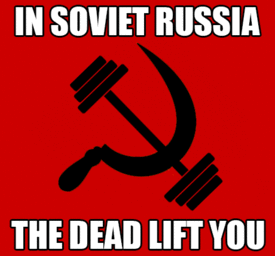Do you train using time or distance?

hypotrochoid
Posts: 842 Member
I'm curious- c25k uses a time based training, working up to a full half hour of running. I used that, then did a 10k training working up to an hour of running. I've done two halfs, but am now formally training for the distance so I don't have the curl up and die feeling after.
I'm still using the time method, but once I start consistently hitting 13.1 in my long runs and I switch to marathon training I'm guessing time is no longer the best way.
Tl;dr
In your opinion, is it better to train by adding time to runs or adding distance?
I'm still using the time method, but once I start consistently hitting 13.1 in my long runs and I switch to marathon training I'm guessing time is no longer the best way.
Tl;dr
In your opinion, is it better to train by adding time to runs or adding distance?
0
Replies
-
I used to work with a coach who expressed everything in distance, and now I work with one who writes the schedule in minutes. But it works out the same in the end because you have a sense of how fast (and therefore how far) you're likely to go and unless every run is an out-and-back route you're going to have a good idea of distance before you start. Today the schedule says 90 minutes and I'll do a loop I know is about the right distance to take that long. I still record my total mileage though so it's not one or the other.
I'd say however you're most comfortable thinking will work fine.0 -
Distance = time x intensity... so I train by both.
For example, if I plan to run 8k tempo... I'll insert 20-30 min of threshold work.
At the end of the week I add up my mileage which is my main measure.0 -
It depends on the run. Anything less than 5 miles is all about the time, unless it's a recovery run after a long run. Anything more than 10 is about the distance, and not feeling like I'm going to die at the end.0
-
I go by distance. Especially for long runs, when I know the second half is longer than the first half. I'm very data driven, so going by time seems like an impossible task. I gotta have my even mileage!0
-
It depends, On the road by distance and Pace both are obviously linked. Trail runs can be either by time or a distance depending on how technical or hard they are. It all can depend on goals and what you are running/training for0
-
kristinegift wrote: »when I know the second half is longer than the first half.
What?0 -
I train by distance. Usually I'm training for an event, and no matter how long it takes, I'm going to have to run that distance, so that's why I prefer that methodology.
I can understand the reasons to use time instead. Like trail running where the level of effort can vary wildly for the same distance depending on the elevation, how technical it is, and what the surface is. There are also certain metabolic adaptations that happen past 90 minutes where you may prefer to do time based training and seek to do a run longer than that time versus a certain distance.0 -
kristinegift wrote: »when I know the second half is longer than the first half.
What?
Haha, typo. When I know the second half will take longer than the first half. Basically: my pacing isn't consistent enough for me to try to run by time exclusively.
0 -
For marathon+ distance, the argument for training by time relates to the theory that you don't gain any extra benefit from running more than 3 hours in one shot. Or rather, that the benefit you gain from running longer is cancelled out by the time it takes to recover from the damage you do to your muscles. The point is that a slower runner and a faster runner will run different--even drastically different--numbers of miles in that time. So you would not tell both the 8:00 pacer and the 11:00 pacer to max out their longest long run at (e.g.) 20 miles, because that puts the slower runner on their feet for nearly four hours.
The flipside to that, of course, is that in the race itself, that slower runner will be spending significantly longer on their feet than the faster runner, so the extra practice on tired legs is--at least mentally--even more important. However, that runner would want to take into account the increasing damage accrued at very long running times, and build in extra rest and recovery time.0 -
Off-topic, but @kristinegift why not slow the first part of your long run right down to a pace you know you can sustain - or even improve on - for the last bit? Practising speeding up at the end of a long run is great training for longer races, when you're tired at the end.0
-
Off-topic, but @kristinegift why not slow the first part of your long run right down to a pace you know you can sustain - or even improve on - for the last bit? Practising speeding up at the end of a long run is great training for longer races, when you're tired at the end.
I'm trying to train myself to run more consistent paces and consciously starting out slower, because this fast-to-slow trend is something I've tried to deal with many times in the past. I still measure by distance and give myself time/pace goals because I like my running data . Learning how to run sustainable paces is one of the big things I'm working on with my base-building this summer for exactly the reason you stated. 0
. Learning how to run sustainable paces is one of the big things I'm working on with my base-building this summer for exactly the reason you stated. 0 -
I write plans by distance. I feel like giving an athlete a plan that says "run x minutes" gives them the opportunity to say "well, if I just run a little faster, I can do it y miles in that time". Then they end up running easy runs too fast and the workouts suffer along with the overall training. If I say run y miles, that removes that incentive.0
-
I think the opposite way, Carson - I was much more likely to think 'x miles, that should take me y minutes!' whereas when the plan is written in minutes I just think 'oh well, I'm taking it pretty easy today, I'll just go a shorter way home for my 90 minutes'. It's all mind games...0
-
For me it depends on the run, especially as I'm not on a plan currently. Most road/path stuff I'll go with distance, with trail it's generally time.0
-
I have been using Matt Fitzgerald's training plans which are written for time, except for the weekly long run, which is in distance. I tend to agree with litsy3, I like that I can say, "okay, I am running for an hour today." I can take it nice and easy, or I can run hard, it's still going to take me an hour either way. I find in that case, I am more likely to take it easy.0
-
I guess this is a case of know thyself or the athlete. I am a fitzgerald 80/20 advocate so again, I know how long I am going to be out for and so plan it that way except for the long run which will be what it will be. Using the pacing guide and a Garmin FR610, I can keep to the prescribed workout limits using audible alarms so not worried. The biggest risk for me running too fast is Strava. So I now consciously ignore segments and PRs/KOMs, wanting to beat those was the biggest risk to screwing up my training regimen0
-
I alternate every 3 weeks between running at sea level (Venice CA) and 7,300 ft. (Mexico City). Therefore I use time. Pace is slower and distance is shorter at altitude, so I limit myself to 40 minutes of running.0
-
A lot of it is dependent on the person. I personally go by miles, I have a hard time hitting x number of minutes (which is why I don't do 6 or 12 hour races). Other people prefer to run by time. Jack Daniels has a set of plans written by time to avoid the situations where someone spends 5 hours doing a 20 mile training run.0
-
For example David, Jack Daniels will limit the long run for marathon training to 2-1/2 hours, period.
He goes on to say that "your long run should be the lesser of 25% of your weekly mileage or 2-1/2 hours. Whichever comes first."0 -
Me personally, I go by miles. But I will also pay attention on how long I do a run. I have a few times in marathon training break the Jack Daniels 2-1/2 hour rule when I was doing 20 miles and a couple 22 miles.
I am not sure if I will do that again this time around. We will see.0 -
Me personally, I go by miles. But I will also pay attention on how long I do a run. I have a few times in marathon training break the Jack Daniels 2-1/2 hour rule when I was doing 20 miles and a couple 22 miles.
I am not sure if I will do that again this time around. We will see.
It is extremely difficult to get 20 miles in on a training run in under 2.5 hours, that is 7:15 avg. pace the whole way. Most people are not (and should not) doing their long runs that fast.
0 -
Pfitzinger & Douglas suggest pacing your 22 mile run progressively from MP +20% to MP + 10% such that it ends up taking the same amount of time as it will take you to run the marathon, which for most people is more than 2.5 hours. Though I've never been that precise about it when following their plans and just run somewhere in that range.0
-
DavidMartinez2 wrote: »Me personally, I go by miles. But I will also pay attention on how long I do a run. I have a few times in marathon training break the Jack Daniels 2-1/2 hour rule when I was doing 20 miles and a couple 22 miles.
I am not sure if I will do that again this time around. We will see.
It is extremely difficult to get 20 miles in on a training run in under 2.5 hours, that is 7:15 avg. pace the whole way. Most people are not (and should not) doing their long runs that fast.
That's why Daniels says the LESSER of 2.5 hours or 25% of your weekly mileage.
Not only is running a 20 miler under 2.5 hours tough, but running 80 miles a week is tough too.
Now we are talking elite level on both the 7:15 pace and 80 mile weeks. https://www.youtube.com/watch?v=EO1hQ_kplgo
https://www.youtube.com/watch?v=EO1hQ_kplgo
0 -
DavidMartinez2 wrote: »Me personally, I go by miles. But I will also pay attention on how long I do a run. I have a few times in marathon training break the Jack Daniels 2-1/2 hour rule when I was doing 20 miles and a couple 22 miles.
I am not sure if I will do that again this time around. We will see.
It is extremely difficult to get 20 miles in on a training run in under 2.5 hours, that is 7:15 avg. pace the whole way. Most people are not (and should not) doing their long runs that fast.
And I wouldn't be attempting to run that 20 miles in 2.5 hours. More like 3 hours and some change.
Like I said, we will see when it comes down to that what I decide how far to do my longest long run at.
0 -
CarsonRuns wrote: »I write plans by distance. I feel like giving an athlete a plan that says "run x minutes" gives them the opportunity to say "well, if I just run a little faster, I can do it y miles in that time". Then they end up running easy runs too fast and the workouts suffer along with the overall training. If I say run y miles, that removes that incentive.I think the opposite way, Carson - I was much more likely to think 'x miles, that should take me y minutes!' whereas when the plan is written in minutes I just think 'oh well, I'm taking it pretty easy today, I'll just go a shorter way home for my 90 minutes'. It's all mind games...
My coach gives me HR zones as well as the time goal to go by which eliminates either of those issues.0 -
That's why Daniels says the LESSER of 2.5 hours or 25% of your weekly mileage.
Not only is running a 20 miler under 2.5 hours tough, but running 80 miles a week is tough too.
Now we are talking elite level on both the 7:15 pace and 80 mile weeks.
I understand what LESSER means. My point was almost every marathon plan on the planet includes at least one run of 20 miles or longer but using the 2.5 hour metric most marathoners will not get that using the JD plan. I am a sub 3 hour marathoner and I am barely able to complete a 20 mile run in under 2.5 hours. The Jack Daniels marathon plans are really not appropriate for recreational runners. The tables he has for identifying training paces are extremely useful. I just don't think sending an 11:00/mile runner out for a 4.5+ hour race when their longest run was 2 hours less than that is a good idea.
0 -
DavidMartinez2 wrote: »
That's why Daniels says the LESSER of 2.5 hours or 25% of your weekly mileage.
Not only is running a 20 miler under 2.5 hours tough, but running 80 miles a week is tough too.
Now we are talking elite level on both the 7:15 pace and 80 mile weeks.
I understand what LESSER means. My point was almost every marathon plan on the planet includes at least one run of 20 miles or longer but using the 2.5 hour metric most marathoners will not get that using the JD plan. I am a sub 3 hour marathoner and I am barely able to complete a 20 mile run in under 2.5 hours. The Jack Daniels marathon plans are really not appropriate for recreational runners. The tables he has for identifying training paces are extremely useful. I just don't think sending an 11:00/mile runner out for a 4.5+ hour race when their longest run was 2 hours less than that is a good idea.
I definitely agree!0 -
DavidMartinez2 wrote: »
That's why Daniels says the LESSER of 2.5 hours or 25% of your weekly mileage.
Not only is running a 20 miler under 2.5 hours tough, but running 80 miles a week is tough too.
Now we are talking elite level on both the 7:15 pace and 80 mile weeks.
I understand what LESSER means. My point was almost every marathon plan on the planet includes at least one run of 20 miles or longer but using the 2.5 hour metric most marathoners will not get that using the JD plan. I am a sub 3 hour marathoner and I am barely able to complete a 20 mile run in under 2.5 hours. The Jack Daniels marathon plans are really not appropriate for recreational runners. The tables he has for identifying training paces are extremely useful. I just don't think sending an 11:00/mile runner out for a 4.5+ hour race when their longest run was 2 hours less than that is a good idea.
Got ya. Yeah. That is probably why a lot of folks believe you have no business training for a marathon until you have at least a couple of years running experience under your belt (at least a couple of years).
You either have to break a lot of "rules" to smart running to complete one of these plans, or just make due with what you have.
Jack would rather have you get hurt running the race than get hurt training for it and not even make the starting line.
I personally feel that if it takes you 6 hours to run a marathon then maybe you should try and be a better half marathoner first before you sign up for a full. It's a huge commitment and I wouldn't want to run for 6 hours.
And nobody try and convince me to run an ultra. ;-) ....well not yet at least.0 -
kristinegift wrote: »I go by distance. Especially for long runs, when I know the second half is longer than the first half. I'm very data driven, so going by time seems like an impossible task. I gotta have my even mileage!
I'm the same way. I'm too OCD to go by time. I've tried, but I can't stop at 6 if I can go 6.2, or 12.8 if I can go 13.1... But different strokes for different folks.0
This discussion has been closed.















